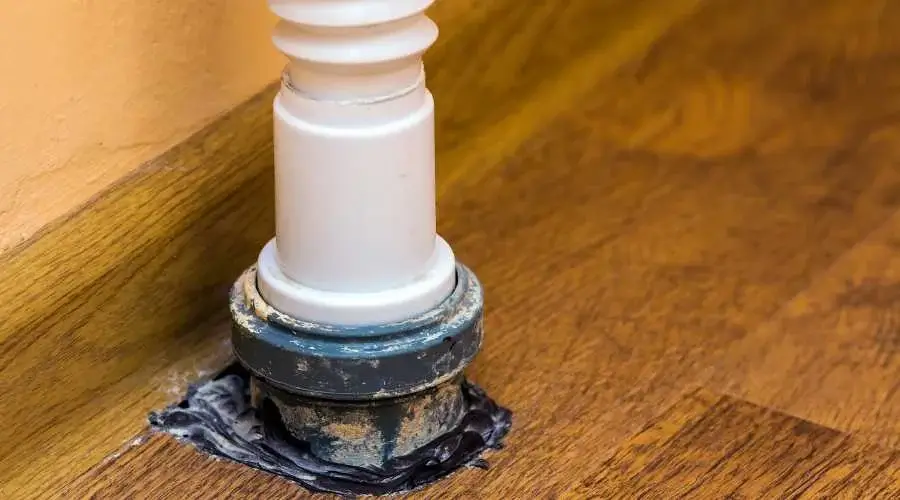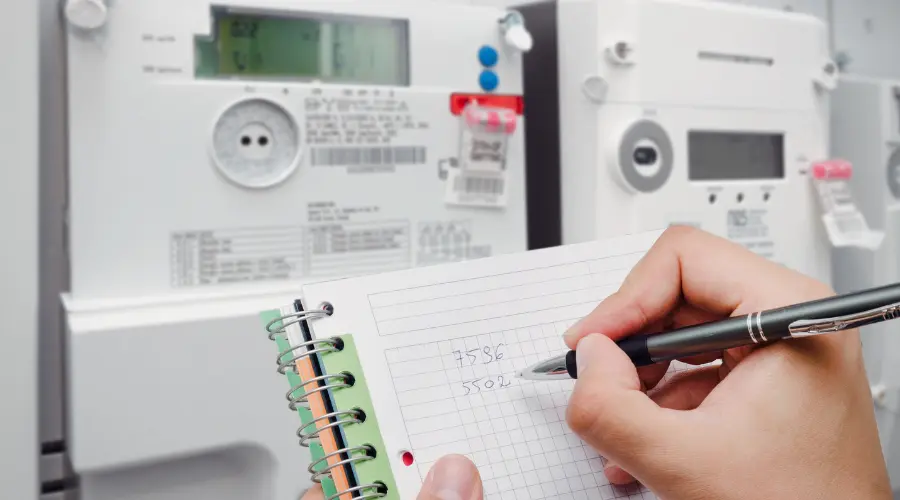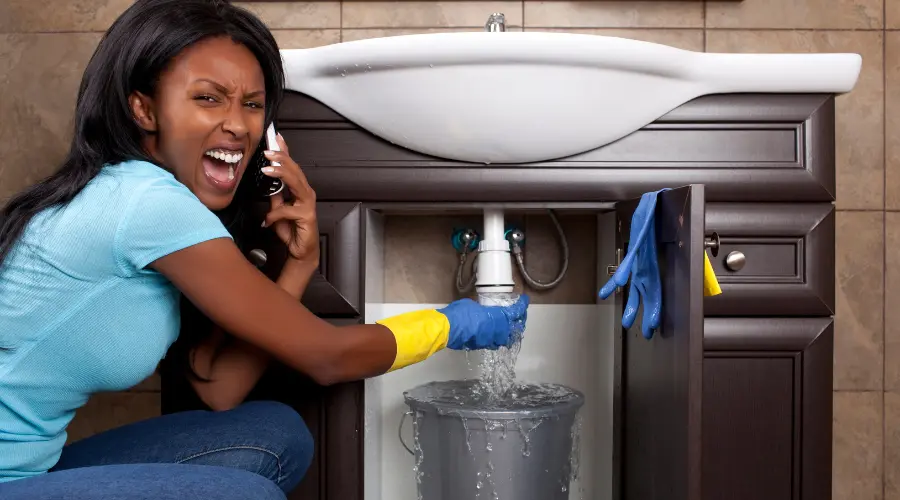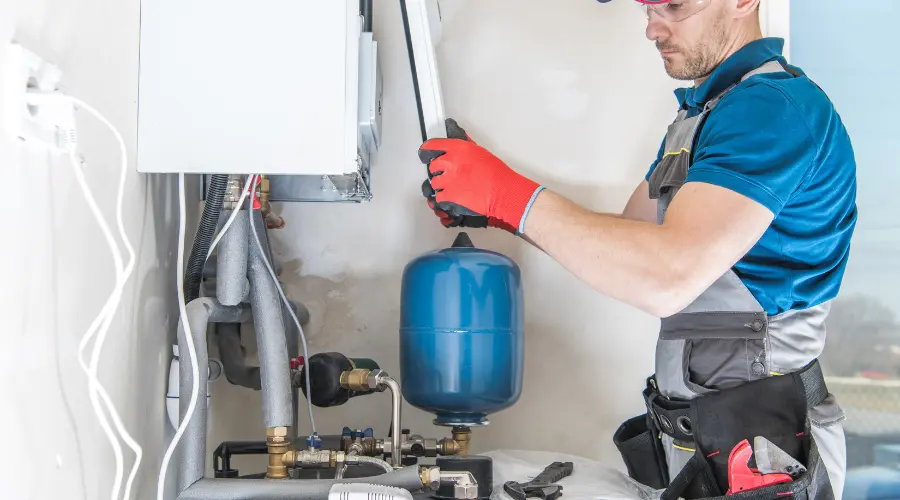A broken sewer pipe can lead to costly damages and health risks if left unattended. Identifying the signs early and acting promptly can save your property and your wallet.
Key Takeaways
- Early detection of sewer pipe issues is crucial to prevent severe property damage and health risks.
- Warning signs include higher water bills, low water pressure, and funky odors.
- Addressing sewer pipe problems promptly can save on repair costs and ensure a healthy home environment.
6 Signs of a Sewer Pipe Break
If you notice any of the following issues in your home or property, it may be time to consult a professional plumber in the New York or New Jersey area to inspect your sewer lines.
1. Higher Water Bill
A sudden spike in your water bill without a change in usage is one of the most obvious signs of a sewer pipe issue. When sewage lines are damaged, they often leak water continuously, resulting in increased water usage. This can be a hidden problem, as the leaks might not be visible on the surface. Keep an eye on your bill for unusual increases and contact a professional to investigate if needed.
Pro Tip: Monitor your monthly water bills closely to detect any irregularities. A typical water bill in the New York or New Jersey region ranges between $10 and $15 per month. Any significant deviation could indicate a problem.
2. Poor Water Pressure
Low water pressure can indicate more than just clogged pipes. It’s often a sign of a larger issue, such as a cracked or burst sewer line. When pipes lose integrity, water doesn’t flow as forcefully, leading to decreased pressure at your faucets.
What to Do: Call a local plumber for a comprehensive inspection to determine whether the issue lies with your sewer line or another part of your plumbing system.
3. Low Water Flow
While water pressure measures the force of water, water flow measures the volume. If multiple appliances or faucets show reduced water flow simultaneously, it’s likely there’s a significant plumbing issue. A broken or partially blocked sewer pipe may be limiting the volume of water that can pass through.
Why It Matters: Reduced water flow can disrupt daily activities and signal that your plumbing system needs immediate attention.
4. Funky Odors
Unpleasant, musty smells in your home can indicate mold and mildew caused by sewer pipe leaks. These fungi thrive in moist environments and can have serious health implications if ignored. Mold exposure can lead to respiratory issues, especially for those with allergies or asthma.
Quick Fix: Addressing the underlying pipe issue promptly will eliminate the moisture source and prevent further mold growth.
5. Persistent Clogging
Frequent clogs are another straightforward sign of sewer pipe damage. While clogs can result from the buildup of debris, grease, or hair, they may also indicate structural damage to your pipes. If cleaning the pipes or performing a video inspection doesn’t resolve the issue, there’s likely a more serious problem.
Expert Advice: Regular maintenance and inspections can prevent recurring clogs and identify pipe damage early.
6. Damp Spots
Unexplained damp spots around your property, such as puddles in the yard, wet ceilings, or damp carpeting, can indicate a burst sewer line. These damp areas often lead to mold growth and structural damage if not addressed immediately.
Action Plan: Inspect these areas closely and consult a professional plumber to assess the extent of the damage.
Don’t Wait to Repair Your Pipes
Neglecting a broken sewer pipe can result in severe consequences for your property and family. Delaying repairs can lead to:
- Structural Damage: Continuous water leakage can weaken your home’s foundation, walls, and floors, leading to costly repairs.
- Health Hazards: Mold and mildew growth caused by moisture can lead to respiratory issues and other health problems.
- Escalating Costs: Addressing a minor pipe issue is far less expensive than repairing extensive water damage or replacing a sewer line.
Proactive Steps:
- Schedule regular plumbing inspections.
- Act promptly when you notice signs of a sewer pipe break.
- Invest in professional plumbing services for long-term peace of mind.
FAQs About Sewer Pipe Breaks
Q: How can I detect a sewer pipe issue early?
A: Look for signs such as sudden increases in your water bill, reduced water pressure or flow, unpleasant odors, persistent clogs, and damp areas around your home.
Q: What causes sewer pipes to break?
A: Common causes include age, corrosion, tree root intrusion, shifting soil, and poor installation. Regular maintenance can help identify these issues before they escalate.
Q: How long does it take to repair a sewer pipe?
A: The repair time depends on the extent of the damage. Minor repairs can take a few hours, while extensive damage might require several days.
Q: Is sewer pipe repair covered by homeowners insurance?
A: Coverage varies by policy. Some homeowners insurance plans cover sewer pipe damage caused by unforeseen events, but wear and tear or age-related damage may not be included. Check your policy or consult your insurer for clarification.
Q: Can I prevent sewer pipe breaks?
A: Yes, regular inspections, proper waste disposal, and tree root management can help prevent sewer pipe issues.
Q: What should I do if I suspect a sewer pipe break?
A: Contact a licensed plumber immediately for an inspection and necessary repairs. Acting quickly can save you from costly damage and health risks.
Conclusion
Ignoring sewer pipe issues can lead to costly repairs, health hazards, and property damage. By staying vigilant and addressing problems promptly, you can protect your home and ensure a safe, healthy environment for your family. If you suspect a sewer pipe break, don’t hesitate to reach out to a trusted plumbing professional in the New York or New Jersey area.
For all your plumbing needs, savvy homeowners in West New York, New Jersey, and the surrounding areas trust West New York Plumbing! From fixing a leaky faucet to tackling a complete plumbing overhaul, no job is too challenging for our team of highly skilled and trained professional plumbers.




